Hate has had its day.
The Conservative party has marked its territory as the party of anti-LBGT (particularly T) hatred but is now a year away from a General Election and, in some polls, flat-lining at less than 20% support. Right-wing propaganda rags such as ‘Spiked’ platform anti-trans commentators such as Jo Bartosch, who opened her most recent hit piece describing trans people:‘…who, occasionally, might have to deal with funny looks, being misgendered or one hell of a bollock-rub when wearing tights designed for women.’
Such cartoon unpleasantness is one of the reasons that the UK has, in a few short years, slipped from the best place in the world to be LGBT to 17th today, according to the ILGAILGA A driving force for political, legal and social change for LGBTI https://www.ilga-europe.org survey. But does that reflect reality or the future?
Considerable notes of desperation appear to have crept into gender-critical / anti-trans narratives recently. The most trans-hostile government in a generation, which has packed the Equality and Human Rights Commission with anti-trans commissioners and chair, made every anti-trans statement that could be imagined, even by our Prime Minister and the ‘joke’ Equalities Minister Kemi Badenoch, has, in fact, failed to roll back a single right or protection for trans people. Accepted advances like strengthening hate crime, banning conversion ‘therapy’, introduction of gender self-identification and legal recognition of non-binary identities have not progressed, but there has no retrenchment.
The desperation is shown by the ‘Spiked’ Jo Bartosch piece mentioned above, which attacks Transgender Day of Remembrance (Monday 20 November 2023), as does a piece by gender-critical barrister Anya Palmer in ‘Unherd’.
This latter article makes the extraordinary suggestion that organisations marking TDOR might be at risk of a legal challenge from gender-critical folk feeling ‘harassed’ by such events. She relies on the results of the Forstater, Bailey and Fahmy cases to support this. But Ms Forstater’s public statements since her case now go far beyond the relatively ‘vanilla’ position she adopted when working with CGD before she became a full-time anti-trans campaigner, supported by her Norman Tebbit-like henchwoman, Helen Joyce’ who described trans people as ‘a massive problem in a sane world’. Alison Bailey failed on virtually every point in her case (especially against her real ‘bete noir’ Stonewall) and recovered damages representing around 1% of the costs spent in the case.
The Fahmy case is particularly interesting. It emphasised the high test for unlawful harassment and Ms Fahmy only succeeded where she was not protected by her employer from extreme personal hate messages aimed at her – not on the support shown for trans people in their workplace and their lives by her employer, as Palmer would suggest.
Let me be entirely clear. Supporting pride events generally, or trans-related awareness events, do not pose ANY sort of legal risk to employers unless participation is forced on employees who, for reasons of conscience, such as religious beliefs, do not want to participate.
That leads me neatly into reflecting the true position of trans people outside the exaggerated world of political hate or social media. This past week, ‘Trans Awareness Week’, I have been somewhat in demand as Britain’s first trans discrimination barrister and on Friday clocked up my 570th talk on trans issues since my own transition, over a decade ago now. Most of this weeks’ talks have been to lawyers, HR professionals and business people. Business values diversity for all sorts of reasons, not least accessing the widest talent pool and reflecting and satisfying its market. Questions to the panels I sat on and listened to were about how to support trans people, how to protect them from trans hate, and how to accommodate the small but vocal minority of trans-haters.
One of the reasons I try never to say ‘no’ to an invitation to speak is that we know that attitudes towards trans people (just like any other minority) are more positive when you have met or know a trans person. It is remarkable that it is still a truth that it takes such a connection for some folk to realise that trans people are just people like anyone else with the same range of hopes, fears and aspirations as anyone else.
I think this is going to be a tough year for trans people, their friends and allies. In the past few hours, the reaction to the Rwanda Supreme Court ruling by our Prime Minister tends to show that he is either in thrall to the right-wing ideologues, or just has no idea beyond hate as an election strategy. If he were receiving real advice, he would be recognising that hate is not a forward-looking strategy. I have been in legal practice for nearly 30 years now. In that time, I saw the tide turn against gay hate, as it will against trans hate, if the views of the coming generation, as represented by the university students and new members of the legal profession that I am privileged to meet, are anything to go by. It is to be hoped that a new administration which believes in the rights of individuals will lead to progress for all, including trans people.
I cannot end without mentioning the most courageous people I met in the past week who brought into stark focus the most serious issue facing trans people at the moment. These were the parents of Alice Litman, whom I met at the Translucent ‘Why’ conference in Whitehall. They spoke with enormous dignity about the help that their trans daughter did not get, leading to her suicide, illustrating the appalling lack of provision of healthcare for trans people in the UK, both adults and young people, particularly from GP’s, (I must have been immensely lucky, given the help I have had and continue to have from my GP’s.) Waiting time running into decades and lack of understanding leading to advice from GP’s to trans young people like ‘play more football’ are just not acceptable and have to change.
It seems that trans people and their allies have to hold their noses for a little longer while the hatemongers demonstrate beyond argument that theirs is a blind alley and we can get back to a UK in which all citizens step forward together towards the light.
It is not far away.
Robin Moira White




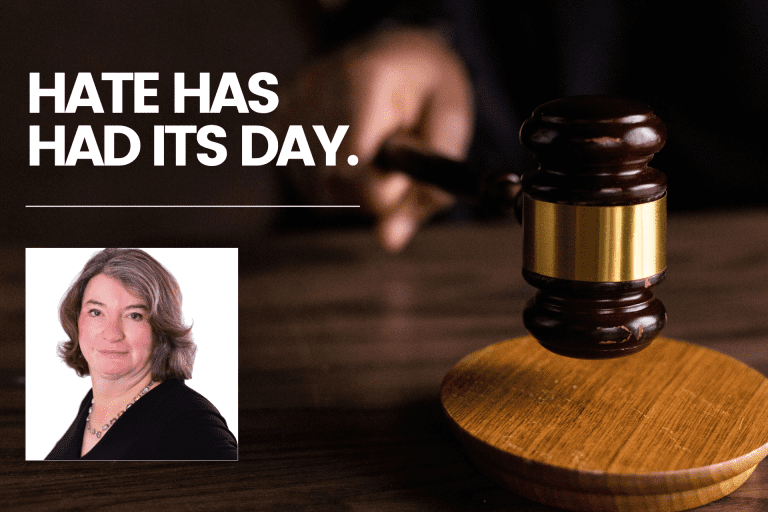
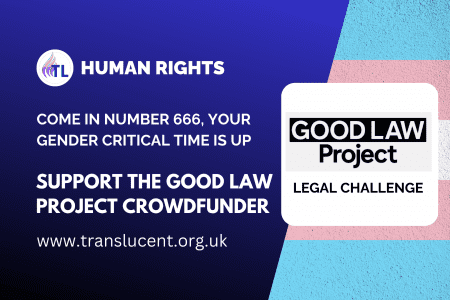
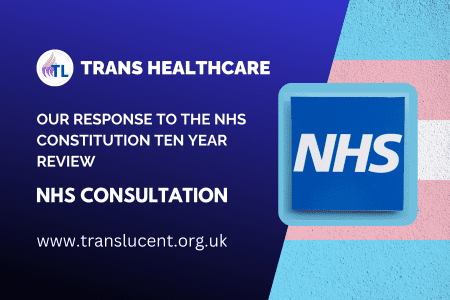
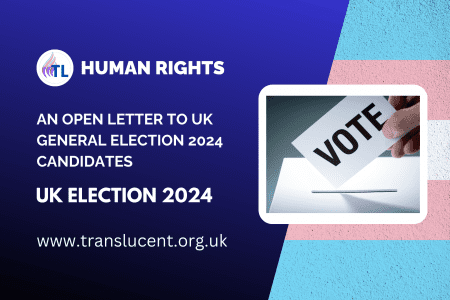
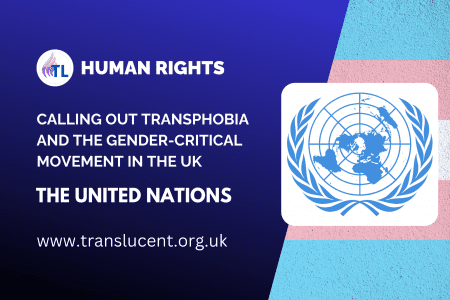
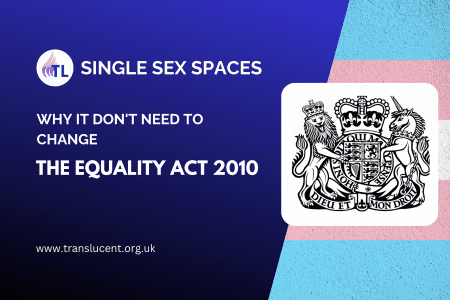
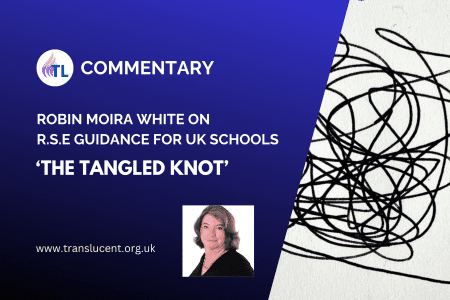
 To provide the best experiences, we use technologies like cookies to store and/or access device information. Consenting to these technologies will allow us to process data such as browsing behaviour or unique IDs on this site. Not consenting or withdrawing consent, may adversely affect certain features and functions.
To provide the best experiences, we use technologies like cookies to store and/or access device information. Consenting to these technologies will allow us to process data such as browsing behaviour or unique IDs on this site. Not consenting or withdrawing consent, may adversely affect certain features and functions.